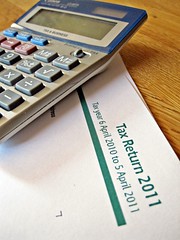Accounting Jobs
A recent article in Financial Trend Forecaster talks about a new trend in the world of accounting. Increasingly more companies are hiring accountants to work on staff as full-time employees to manage corporate budgets, accounts payable and receivable, to present financial reports to investors and to negotiate corporate tax laws. Companies are also looking for accounting professionals to protect investors’ money and company assets. At the same time, more businesses are looking to hire accountants, the jobs are becoming harder to fill. In addition, companies are becoming more global in nature and adopting the global standards called International Financial Reporting Standards (IFRS).
More Accounting Jobs Available

What Accountants and Auditors Do
According to the BLS: “Accountants and auditors prepare and examine financial records. They ensure that financial records are accurate and that taxes are paid properly and on time. Accountants and auditors assess financial operations and work to help ensure that organizations run efficiently.”
Most accountants and auditors work full time in an office-based environment although some work from home. Auditors may travel to their clients’ places of business. Typically they may work longer hours during certain times of the year, such as at the end of the budget year or during tax season.
Education Requirements- For Accounting Jobs
Most employers require a minimum education of a bachelor’s degree in accounting or a related field. Some employers prefer to hire applicants who have a master’s degree, either in accounting or in business administration with a concentration in accounting. Certification within a specific field of accounting improves job prospects. For example, many accountants become Certified Public Accountants (CPAs).
In additon there are Accounting support positions like Bookkeeping, Accounting, and Auditing Clerks. In 2010 their median salaries were $34,030 per year. They record financial transactions, update statements, and check financial records for accuracy. Most bookkeeping, accounting, and auditing clerks need at least a high school diploma. However, some employers prefer candidates who have some postsecondary education, particularly coursework in accounting. In 2009, 25 percent of these workers had an associate’s or higher degree. Often some on the job training is available. But some additional classroom training may be necessary such as training in specialized computer software. This on-the-job training typically takes around 6 months.
Tim McMahon is the editor of UnemploymentData and InflationData.com and he began publishing the Financial Trend Forecaster newsletter in 1995 upon the death of James Moore the creator of the Moore Inflation Predictor. He is a graduate of Clarkson University in Potsdam N.Y. He has traveled to 35 of the 50 States and 23 different countries on 5 continents.
See Also:
How to Get a Career Instead of Just a Job
Why Your Small Business Needs an Accountant
The Difference a Degree Makes in Unemployment Levels
10 Awesome Jobs You Can Do From Home
Balance Sheet Health for Your Small Business
Expanded Horizons: Doing Business Internationally
The Basics of Starting a Small Home-Based Business
Returning to College for a Higher Degree?


The consultation fee is very minor compared to the fines that could be placed
on you or your property, should you not know about them.
For example, it’s common for sole traders, somewhere down the line,
to go into partnership together, or establish themselves as a limited company.
As a public accountant you may work independently in your own practice, in a partnership, or as
a member of a firm of public accountants.